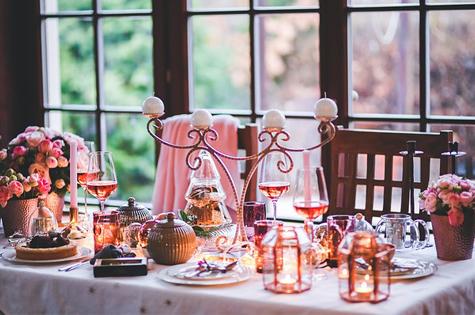Christmas is right around the corner, and excitement is building for the biggest, most lavish family dinner of the year. Whether you’re a turkey, duck, goose, or nut-roast fan, the Christmas Day meal is always something to shout about. It is a time for sharing, spreading the love, and being generous with everything from your chocolates to your favourite festive films.
Yet, there’s another side to Christmas that most of us don’t think much about.
It is a reality that is glossed over and disregarded, in favour of an indulgent afternoon. If you could see the problem in its entirety, however, you might be quite surprised. Every year, Australian families spend a staggering $10 billion on food for the Christmas holidays. More surprisingly, they end up throwing 35% of it away as unwanted leftovers.
The good news is that you can do your part to reduce this percentage and makes Christmas in your house a little bit more sustainable this year. It is a lot easier than you might think.
Protect Your Leftovers
All that you need to stop leftover food from spoiling is a sturdy vacuum sealer.
These nifty devices are really easy to use, and a fantastic way to keep things fresh. You put your ingredients (turkey, ham, sausage rolls, etc.) into a suitable fridge or freezer bag and insert the end into the machine. At the click of a button, it sucks all of the oxygen out of the bag and vacuum wraps the food in the same way that a deli or snack counter in the supermarket would.
Plan Your Christmas Dinner
Almost every family ends up buying too much food for their Christmas dinner. The thought of running out on the most important day of the year is simply too much to bear. Yet, a simple and easy way to get around this is to plan the meal. If you sit down and think, realistically, about how much food a single person can eat, you’ll realise that festive overestimations tend to be way off the mark.
Resist Supermarket Deals
You’ve probably noticed that, as soon as December rolls around, the supermarkets start to pull out some major deals. All of the ‘Two for One’ and ‘Buy One Get One Free’ bargains come out to play in the run up to Christmas. Unfortunately, these deals are rarely as valuable as you think they are, because they only end up encouraging homeowners to buy food that they won’t eat. So, try to resist buying more food than you need simply because you can afford it.
Use Your Common Senses
The thing to remember about ‘Best Before’ dates is that they, literally mean, best used before. They are different to Use By dates, which are placed on ingredients which spoil quickly like eggs, milk, yoghurt, meat, and cream. Once an ingredient has passed its best before date, it is no longer in the freshest condition, but it will remain perfectly edible for some time. Use your senses – your nose, eyes, and mouth – to make sensible judgements as to when food needs to be thrown away.
Get Creative with Scraps
For families that really want to get sustainable this year, there are all kinds of creative ways to recycle food waste. Even things like potato peel, carrot tops, and turkey bones are reusable. If you combine all of these things in a stock for a winter broth, you’ll have a tasty treat that warms your insides long after the Christmas table has been cleared. Or, if the idea of cooking with scraps doesn’t appeal, take them outside for the birds in your garden.
Why a Little Care Gives a Long Way at Christmas
At Christmas, it is really easy to forget that there are people, all around the world, who aren’t enjoying the same privileges as you. It is easy to overlook the fact that Christmas shopping puts a huge strain on our planet, as manufacturers double their output and accelerate their use of non-renewable fuels. While recycling leftovers and taking steps to minimise festive waste can feel like a small drop in the ocean, it makes a huge impact when lots of families and make the decision to care a little at Christmas.








 Agree (0)
Agree (0) Disagree (
Disagree (









__small.png)










